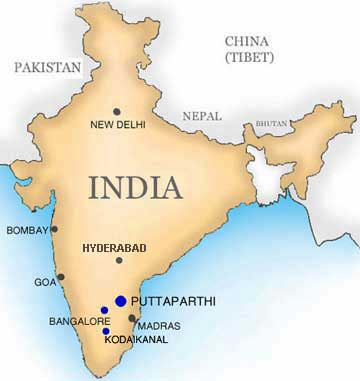Indian street urchin bank weathers global crisis
 New Delhi - Bank manager Sudhir has never heard of credit derivates and has no clue about investment funds. He is just about capable of doing basic arithmetic and calculating interest rates.
New Delhi - Bank manager Sudhir has never heard of credit derivates and has no clue about investment funds. He is just about capable of doing basic arithmetic and calculating interest rates.
But while his counterparts in posh Western office towers worry about gaping holes in their balance sheets, the 13-year-old's business is going strong.
Still, the bank's staff and customers are far from free of fear of losing their livelihoods. They are street children in India's capital, New Delhi.
The bank is located in a dark alleyway near the railway station in the old part of Delhi. Before depositing their funds, Sudhir's clients have to jump over several puddles stinking of urine, navigate around beggars lying on the ground and avoid the long queue snaking out of a nearby homeless shelter.
Sudhir's headquarters, which consist of a desk with a drawer, can be found in a corner of the sparsely furnished offices of Butterflies, an Indian-based charity. A metal grille separates the young manager from his clients.
Every evening, New Delhi's street kids can deposit their earnings at the bank. They have the choice between a daily accessible current account and a savings account, through which they get 3.5-per-cent interest.
That day, Sudhir administers funds worth around 190 dollars, a sum he has to work for at least 50 days to earn at his day job. The boy makes money helping out at parties, washing the dishes or clearing tables.
"When I am paid well, I get about 200 rupees [4 dollars] per day," Sudhir said. "When I'm paid badly, it's 50 rupees."
Many of the street children, aged 10 to 18, collect garbage and sell whatever can be sold. They earn even less.
Butterflies social worker Sebastian Matthew would prefer it if they did not have to work at all.
"But that's not possible," he said. "The children have to make money."
At least the Children's Development Bank offers them a chance to keep their meagre earnings safe.
It is not the only project of the charity, which also runs education programmes, provides medication and offers simple accommodation - floor space and a blanket.
The bank was established to teach the children to assume responsibility. "We only check the accounts but do not interfere otherwise," Matthew said.
Sudhir and his colleagues run the bank voluntarily. He was elected manager by the other children who have an account with the bank.
He got the job because he is one of the few who goes to school. "But later I don't want to work in a bank but do something with computers," he said.
Children with a business idea can also apply for loans. Most of them want capital to start selling vegetables or clothing. However, obtaining a loan is not child's play.
Prospective borrowers each have to find two children to vouch for them and answer to a street kid committee on how they plan to repay the loan, which comes with a 3.5-per-cent interest rate.
While the bank's clients look to be little reliable at first sight, the urchin-run bank is not plagued by toxic credits like its "grown-up" counterparts, Matthew said.
Still, the global financial crisis has its negative effects on New Delhi's street kids. The harsh economic times make it far more difficult to get donations from aid organizations, the social worker said. (dpa)